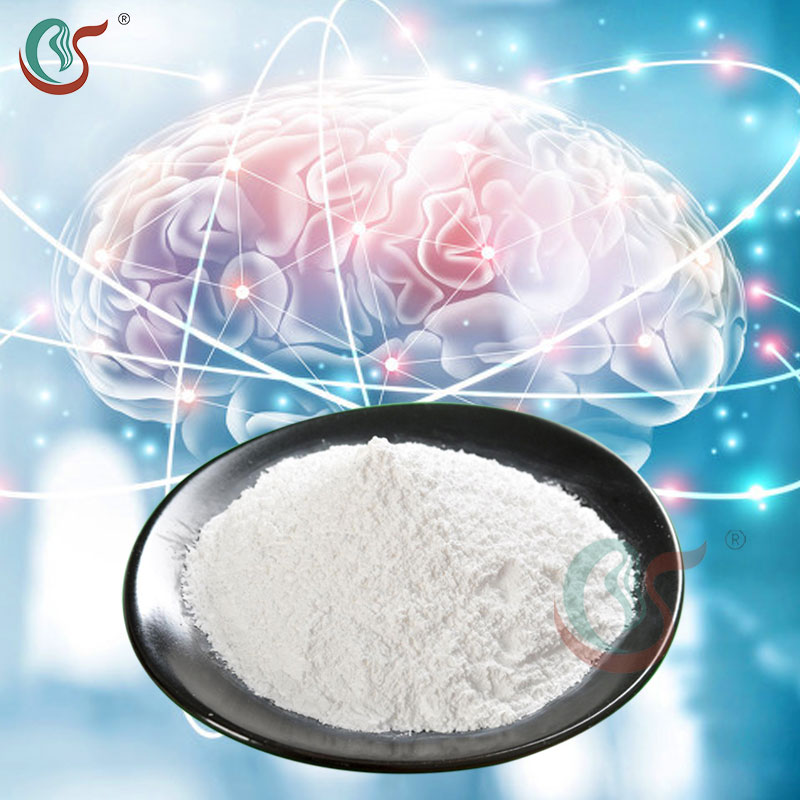 According to the report of China Economic Net Beijing on August 8th, under the background of frequent food safety problems in China, the Chinese food industry is experiencing an unprecedented credit crisis. Horizontal cross-border acquisitions and vertical industrial chain integration in the food industry tend to active. Since the beginning of this year, the value of global M&A transactions in the food industry reached US$66.2 billion, making it the world's second-largest M&A hotspot after the real estate industry. China's food industry is welcoming the best time for mergers and acquisitions.
According to the report of China Economic Net Beijing on August 8th, under the background of frequent food safety problems in China, the Chinese food industry is experiencing an unprecedented credit crisis. Horizontal cross-border acquisitions and vertical industrial chain integration in the food industry tend to active. Since the beginning of this year, the value of global M&A transactions in the food industry reached US$66.2 billion, making it the world's second-largest M&A hotspot after the real estate industry. China's food industry is welcoming the best time for mergers and acquisitions. Dairy ushered in the largest M&A in history
The cost pressures of rising raw material prices and supervision at the national policy level are forcing the food industry to accelerate its industrial concentration. In the first half of 2013, the development of dairy enterprises became the focus of attention. Not long ago, the State Council held an executive meeting to promote and strengthen the milk powder quality and safety work of infants and young children. At the same time, infant milk powder enterprises were encouraged to merge and reorganize, and efforts were made to increase the overall industrial concentration and competitiveness.
Gao Fu, deputy inspector of the Consumer Products Department of the Ministry of Industry and Information Technology, said at the National Food Safety Week Conference this year that he will work hard to increase the concentration of the domestic milk powder industry and encourage mergers and acquisitions. Within two years, we will strive to nurture and form 10 large enterprise groups with independent intellectual property rights with annual sales income exceeding RMB 2 billion. In this regard, Mengniu teamed up with Danone and entered the modern animal husbandry business. The acquisition of Yashili is a typical case.
On June 18, Mengniu announced the purchase of HK$12.46 billion worth of Yashili. This is the largest merger in China's dairy industry so far, and it is also an important signal for Mengniu Dairy's efforts in the field of milk powder. After the two major dairy giants join hands, they will use the advantages of products, brands, and channels to accelerate the overall upgrade of the high-end milk powder industry through resource integration and complementarity. However, at the same time, entering the main modern animal husbandry and acquiring Yashili, the operation of a series of “COFCO-style†people not only worried whether Mengniu’s financial strength could sustain such frequent M&A, but also worried about the courageousness of the money. Is the move a little reckless?
Wine industry has always been no shortage of mergers and acquisitions
As an indispensable part of people's table, the drinks and beverages industry is also experiencing a boom in industry mergers and acquisitions, especially beer. Summer has always been the peak season for beer consumption, and the beer industry has never been a shortage of mergers and acquisitions.
On February 5 this year, the world’s second-largest brewer SABMiller’s China-owned joint venture, China Resources Snowflake’s China Resources Enterprise and Kingway Beer, announced that China Resources Snowflake has reached an agreement with Kingway Beer on February 5 to reach approximately 53.84. A billion yuan in consideration for the acquisition of the latter’s beer business.
On March 4th this year, Chongqing Beer Group Co., Ltd. signed an agreement with Carlsberg Hong Kong Co., Ltd., the world’s fifth-largest brewer and Carlsberg’s wholly-owned subsidiary of Carlsberg, a Danish beer giant, to implement a partial tender offer for Chongqing Beer. The number of acquisitions is about 147 million shares, accounting for 30.29% of the total share capital. The total amount of funds required for this tender offer is 2.932 billion yuan. After the completion of the acquisition, Carlsberg Hong Kong holds up to 42.54% of the shares of Chongqing Beer. The Carlsberg Foundation controls up to 60% of Chongqing Beer's shares and becomes the largest shareholder and controller of the heavy beer.
According to the research report of Guohai Securities, China’s total beer production in 2012 was 49.02 billion liters, an increase of 3.06% compared to the same period of last year. The first camp was Tsingtao Brewery, Yanjing Brewery, and China Resources Snow Beer, Harbin Brewery, Zhujiang Brewery, and Chongqing. Beer, Venus Beer, Fujian Shuangjin Beer are the second camp.
Among them, Budweiser has different degrees of control of Harbin Beer, Zhujiang Beer and Sedrin Beer, while China Resources Snow has 49% of its shares in the hands of the South African Miller Brewing Company; Japan Asahi Beer is “staining†Tsingtao Beer. Currently among the major beer companies, there is no foreign investment only Yanjing beer and Venus beer, but Venus beer has repeatedly reported close to Budweiser "scandal." At present, the domestic first-tier companies of liquor and beer are already strong in their own strength, so the strong second-tier brands have become the first choice for foreign investment.
In addition, on July 23rd, Diageo, an English wine giant with Johnnie Walker and Guinness, announced that it will invest nearly RMB 2.2 billion to acquire the parent company of Shuijingfang. Diageo wholly owns 100% of the shares of Shuijingfang Group. There was a 39.71% stake in the listed company Shuijingfang Co., Ltd. and became the largest shareholder of Shuijingfang. The name of the Quanxing Group Company was also changed to Sichuan Chengdu Shuijingfang Group Co., Ltd., and Shuijingfang was transformed into a Baijiyang brand.
Meat companies go out or must choose
With the exception of dairy enterprises and beverage companies, the food industry is the most active meat company. On May 29 this year, Shuanghui International Holdings Co., Ltd. and Smithfield Foods (NYSE:SFD) jointly announced that Shuanghui International will acquire Smithfield for a total price of US$7.1 billion.
Shuanghui International is the largest meat processing company in China and the controlling shareholder of Shuanghui Development (000895), the largest meat listed company in China, and the controlling shareholder of Shuanghui Group, the largest shareholder of Shuanghui Development. Smithfield is the world's largest pig producer and pork supplier and one of the largest suppliers of pork products in the United States. "This is a standard combination of strengths. Both companies are global industry leaders. There is no combination that can surpass this combination of strengths." said Dr. Zhang Baoying, chairman of Jiuding Desheng Investment Advisory Co., Ltd.
The industry also believes that the Shuanghui Group’s announcement that it will acquire Miesfeld reflects the shift in the acquisition of consumer goods and services by resource-driven acquisitions by Chinese companies in overseas expansion. Shuanghui Group Chairman Wan Long also said, “At present, China's grain production and meat production are in a tight balance of supply and demand, and as incremental demand continues to strengthen, it is an inevitable choice for Chinese food companies to go global.â€
Chinese food industry is ushering in the best merger and acquisition period
It is understood that since the beginning of this year, the global food industry has achieved a transaction volume of $66.2 billion in mergers and acquisitions, becoming the world's second-largest M&A hotspot after the real estate industry. The industry generally believes that the Chinese food industry is ushering in the best opportunity for mergers and acquisitions.
Among them, Chinese food companies are actively “going out†to participate in the integration of global resources, and relying on the rapid development of capital market power is becoming a common practice. This is by no means accidental. The stable and sustained cash flow of Chinese companies, the strong impulse to integrate the international industrial chain, the undervaluation of the asset value caused by the global economic downturn, and the low-cost financing provided by loose monetary policies need to be timely and profitable.
People in the industry believe that the economic downturn has led to a shrinking consumer market, weakened profitability of global food companies, and a significant decline in valuations. Previously, the world's major stock markets have a P/E ratio of 20 to 30 times that of the food industry, but expectations for this year and next year are 17 to 19 times and 15 to 16 times. International food companies with excellent brands and resources for scarce agricultural products have become M&A prey.
At the same time, in order to stimulate the economy, the central banks of major economies in the world generally implement loose monetary policies. At present, in the overseas markets, investment-grade companies can obtain a financing price of about 3% over the period from three to five years, which is much lower than the domestic counterparty loan interest rate in China. This directly reduces the financing costs of major currencies such as the US dollar and stimulates the desire of Chinese companies for cross-border mergers and acquisitions.
In addition, people in the industry generally believe that one of the fatal problems in China's food industry is low market concentration, mixed industry, and frequent food safety problems, resulting in a great "negative externality" in the industry. The overseas mergers and acquisitions of China's food giants can, on the one hand, reduce risks through the introduction of foreign health resources. On the one hand, they can use their resource integration to leverage their comparative advantages and increase their profits.
Through mergers and acquisitions, Chinese enterprises can participate in the allocation of international resources, effectively combine European and American resources, technology and food brands with China's market and labor force, give full play to the comparative advantages of each market, thereby breaking through the constraints of traditional production factors and enhancing corporate value. . In the long run, the participation of Chinese food companies in international resource allocation will help improve product quality and brand reputation, and help increase consumers' awareness of food safety, thereby promoting industry balance in cost, benefits and efficiency.
Alpha-GPC Powder has qualities of treating overall general mental health including: learning and memory, thinking skills and mood.Several studies have shown Alpha GPC to be beneficial for depression and mood. Lacking in choline can lead to depression and low energy levels. Supplementation of Alpha GPC can have great benefits for these individuals.
Product Name Alpha-GPC Powder
Alias Alpha GPC, Choline glycerophosphate
CAS 28319-77-9
MF C8H20NO6P
MW 257.22
EINECS 248-962-2
PURITY 99.5%
PHYSICAL STATE white powder
Usage nootropic, memory and learning functions improve

We are a professional company aimed at pharmacy raw material, like anti-depression drug raw material , anti acne drug raw material, antibiotic raw material, Nootropics Drug raw material, Local Anaesthetic Agents ,Bodybuilding Peptide ,sarms,API Powder etc.
Nootropic List
|
Aniracetam |
72432-10-1 |
Pramiracetam |
68497-62-1 |
|
Fasoracetam |
110958-19-5 |
Sunifiram(DM-235) |
314728-85-3 |
|
Nefiracetam |
77191-36-7 |
Alpha GPC |
28319-77-9 |
|
Noopept |
157115-85-0 |
Coluracetam |
135463-81-9 |
|
Oxiracetam |
62613-82-5 |
Citicoline |
987-78-0 |
|
Picamilon |
34562-97-5 |
Galantamine Hydrobromide |
1953-04-4 |
|
Piracetam |
7491-74-9 |
9-fluorenol/Hydrafinail |
1689-64-1 |
|
Pirespa(Pirfenidone) |
53179-13-8 |
Idebenone |
58186-27-9 |
|
NSI-189 (Free base ) |
1270138-40-3 |
Sulbutiamine |
3286-46-2 |
|
phenylpiracetam/Carphedon |
77472-70-9 |
tianeptine sodium |
30123-17-2 |
|
Phenibut |
1078-21-3 |
Vinpocetine |
42971-09-5 |
|
PRL-8-53 HCL |
51352-87-5 |
Vincamine |
1617-90-9 |
Alpha-Gpc Powder,Gpc Powder,Alpha Gpc Powder Bulk,Alpha Gpc Bulk Powder
Shaanxi Kang New Pharmaceutical co., Ltd. , https://www.anabolicsteriod.com